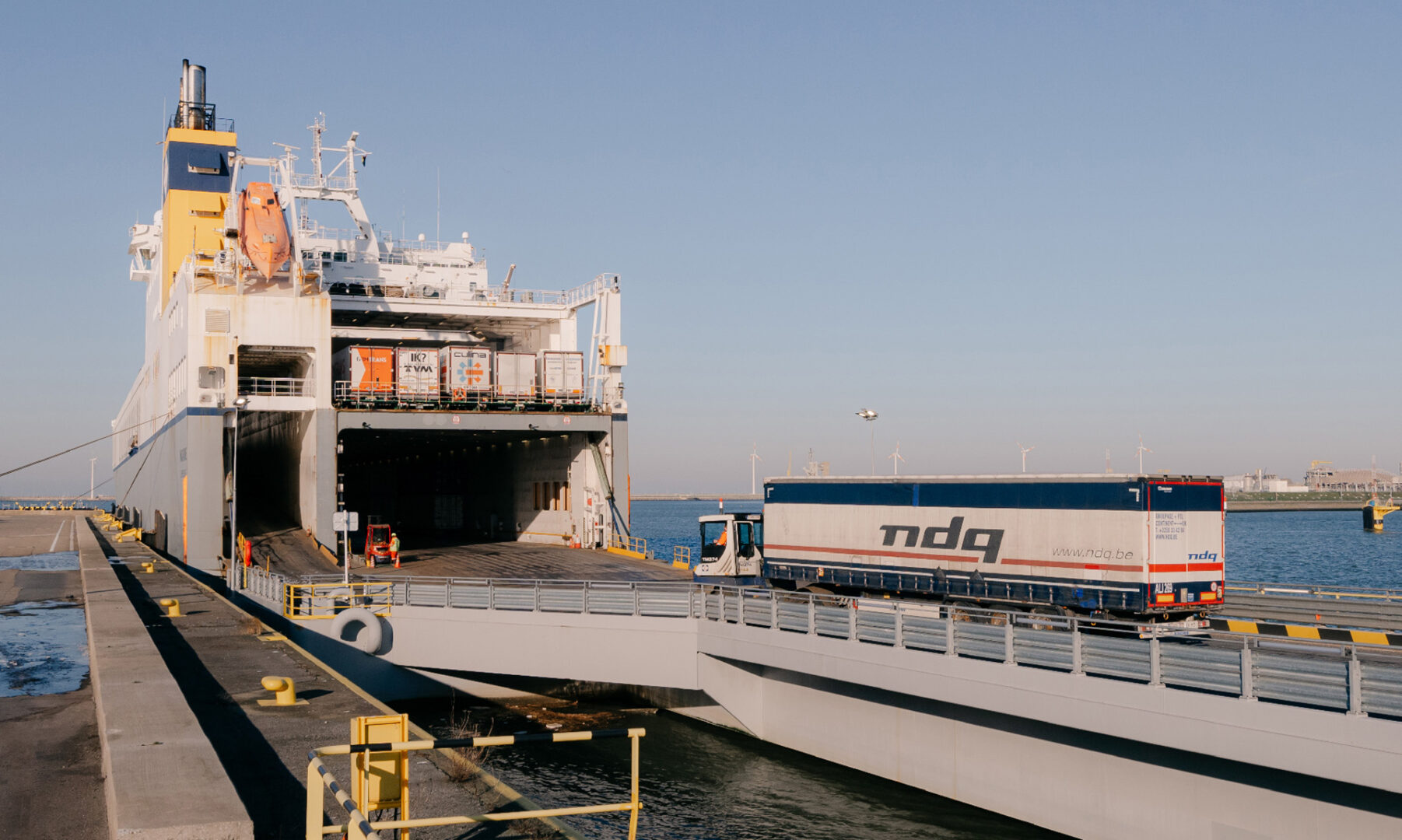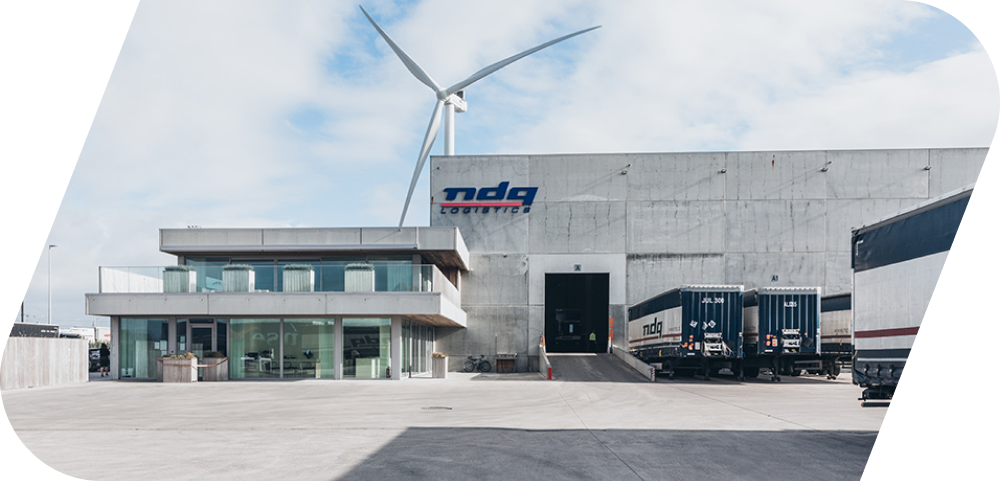REDUCING YOUR
CARBON FOOTPRINT
IN 3 KEY AREAS

THIS SEASON OF NEW YEAR’S RESOLUTIONS IS THE PERFECT OCCASION TO FORMULATE THE NEXT STEPS IN YOUR CARBON REDUCTION PLAN.
Reducing emissions from cargo transport can be boiled down to 3 essential areas of change: minimising kilometres on the road, improving efficiency for the remaining kilometres, and optimising the cargo itself.
Improving your company’s performance in each of these areas will be instrumental in achieving your long-term carbon emissions goals.
How to minimise road kilometres
Of all possible shipping methods, transporting goods by road is the most environmentally harmful option by far. In fact, freight transport by road creates over 5 times the CO2 emissions caused by rail transport. And when compared to maritime shipping, road transport performs nearly 20 times worse. (emissions impact calculated from European Court of Auditors data)
The good news is that you can significantly reduce the kilometres your cargo travels by road in a number of ways.
1. Make a modal shift
Begin by exploring alternative transport modes. An experienced logistics partner will audit your current transport lines and identify any opportunities for a modal shift.
When it comes to long-haul trucking kilometres driven on the European mainland, rail shipping makes for an excellent replacement with a remarkable reduction in emissions.
2. Pivot to unaccompanied shipping
Has accompanied shipping been your go-to shipping method to date? In that case, a switch to unaccompanied shipping can go a long way towards minimising carbon emissions. Instead of a dedicated driver transporting one trailer load from door to door, that same trailer can likely be shipped unaccompanied by rail and/or sea for at least a portion of the journey.
Unaccompanied transport opens up an array of potential route modifications or a sea port change on one or both sides of the North Sea. The port of Zeebrugge in Belgium, for example, is home to numerous roll-on/roll-off shipping lines: the ideal way to deliver your goods to a port closest to your final inland destination – and eliminate additional kilometres on the road.
Aside from cutting CO2 emissions unaccompanied shipping also represents a significant cost reduction in a number of ways.
"A SWITCH TO UNACCOMPANIED SHIPPING CAN GO A LONG WAY TOWARDS MINIMISING CARBON EMISSIONS."
3. Take to the seas
As touched on above, shipping by sea is the most environmentally friendly cargo transport method. The more road freight kilometres you can replace with an increased distance travelled by sea, the better.
Route optimisation, an unaccompanied shipping strategy, and updated shipping ports are all important parts of the equation to elevate maritime transport as a crucial element in your logistics plan.
How to improve road transport efficiency
Of course, it might not be possible to fully eliminate road shipping from your transport routes. Thankfully, technological advances and deliberate practices can still optimise your emissions performance on those remaining road kilometres, resulting in meaningful change.
Among many bold and more subtle ways to reduce the environmental impact of non-negotiable road kilometres, your shipping partner can walk you through opportunities for improvement in these key areas:
- Ensuring an environmentally friendly fleet
- Monitoring fuel efficiency and exploring fuel alternatives
- Prioritising vehicle maintenance for optimal performance
- Training drivers on eco-friendly driving practices
- Mapping routes to avoid unnecessary kilometres
- Adjusting routes to avoid idling in heavy traffic

How to optimise your cargo
Beyond the impact of route changes, modal shifts, and road performance on your organisation’s overall carbon footprint, there are several things to keep in mind when it comes to your cargo itself.
An essential best practice is, of course, to plan shipments in a way that eliminates partial trailer loads and empty runs. This attention to efficiency will not only streamline your logistics operations and reduce costs, but ultimately minimise the carbon emissions resulting from each shipment.
An experienced shipping partner like NDQ Logistics will ensure that each trailer is loaded with the utmost care. Prioritising the safety of your cargo has the added benefit of maximising the available cargo space within each unit – resulting in fewer shipments overall and a reduced environmental impact.
Ready to make your sustainability intentions a reality this year?
Let the NDQ team help you formulate an updated logistics plan. Our experts will walk you through your options to create a shipping strategy that matches your unique shipping needs and supports your long-term carbon emissions goals.
